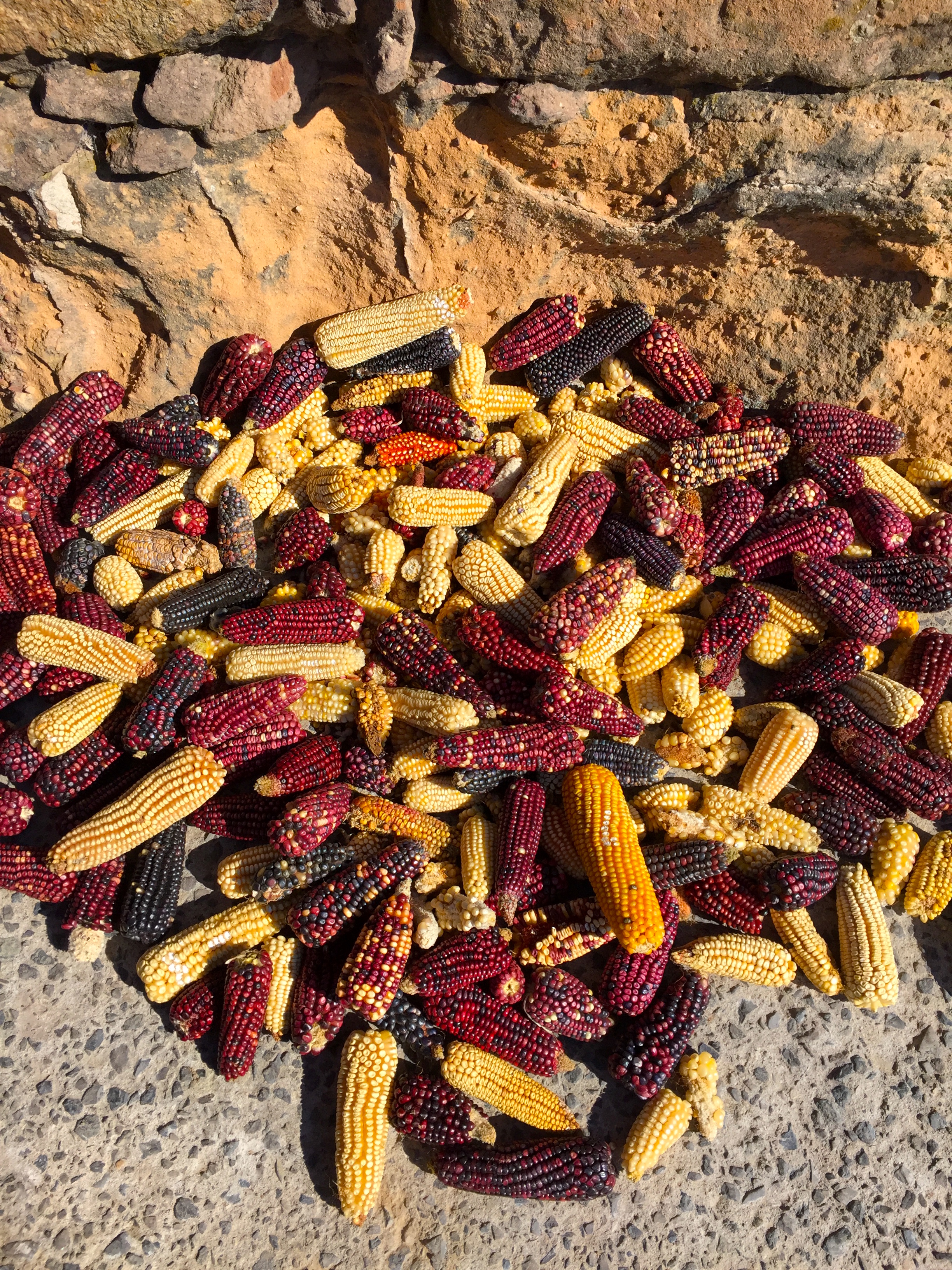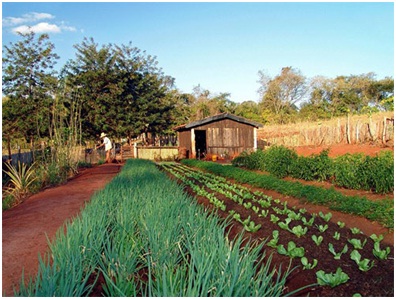There are two major issues that have strongly shaped most rural sociology approaches nowadays, in one hand we have a socioeconomic crisis, and at the other we have a socioecological crisis, despite economic growth and the low performance of aggregate indicators of macroeconomic health at world regional scale.
In deed, such a socioeconomic crisis is expressed as a wide world poverty crisis that hits women most severely, first because they are the poorest among the poor, and then because, with nature, they are the primary sustainers of society (PNUD, 2013). At the same time, there is also a sociecological crisis that has not only affected the agricultural system, especially for small farmers, but has also altered the distribution of vector-borne diseases affecting people, crops, and other crucial species; a widespread concept of this crisis has been acknowledged as climate change and biodiversity loss (IPCC Working Group II, 2007).
In between of those facts, we can notice that any debate about sustainability or an alternative paradigm is essentially a debate about ultimate meaning—the what, who, why and how am I. There is, therefore, a crisis of perception and so on. On a rich side of the crisis there is mainly banality, whereas on the poorer side we see only uncertainty and fear (Altieri & Pengue, 2006).
To face this crisis, we should focus on a diverse angle of view that helps us to understand the edge where we stand and to trace alternative pathways from current civilizatory crisis. Such an alternative point of view is meant to be the multidimensional concept of sustainability (Astier, Masera, & Galván, 2008).
Sustainability as a conceptual framework must be situated within the Brundtland report called “Our common future” (Brundtland, 1987). In this report, a interdisciplinary group of scientists came along to the conclusion that economic growth had a limit fixed by the charge capability of the planet to supply materials and fossil fuels, and to process wastes from human societies (Meadows, 1998):
The commission is convinced that the present disturbing trends and developments cannot continue. We believe that humanity has reached a crossroads in its relationship with nature. We are also cognizant in its choices we make today will determine the future of our planet and the porsperity and well-being of the people who will inhabit it. (…) We believe there are actions that must be taken now. That there are options for a sustainable future (Brundtland, 1987, p. 4).
Those options and the alternative framework of sustainability have been appropriated by a wide diversity of social groups around the planet becoming into social movements and scientific approaches.
In this sense, whereas some multilateral institutions in the North have addressed to such civilizatory crisis seeking a deeper structural change in order to achieve national modernization of poorer societies thru capitalism and representative democracy, civil groups and social movements in the South are implementing degrowth and agroecology as sustainability strategies to build up a new civilization and to face environmental crisis and development. We will focus here on a particular feature of sustainability in institutional projects of contemporary development: the participatory claim.
A main feature of sustainability has been the so called participatory projects in sustainable development, which have assumed Paulo Freire ́s concepts of critical pedagogy. However, participatory processes have shown a lack of people ́s traditional knowledge (Cleaver, 2001).
In this context, Frances Cleaver in the text “Institutions, Agency and the limitations of participatory approaches to development”, remarks that: “Participation of community members is asummed to contribute to enhance efficiency and effectiveness of investment and to promote processes of democratization and empowerment” (Cleaver, 2001, p. 36).
Nevertheless, such a participatory claim underpins certain contradictions about empowerment in development projects: as social and estructural action has been turned into individual action and a practice nested into fragmented technological knowledge.
As Cleaver states, the institutional participatory projects frequently are far a way from the understanding of non-project of people ́s lives and their complex livelihood interlinkages that make an impact. As a consequence, we are able to watch that in participatory processes people and their communities have turned into objects of institutional intervention.
She is right. The Western knowledge (rational and systematic knowledge from Positive tradition) and participatory processes usually are fed by rational choice approach widely spread within institutionalism framework where those development projects and multilateral aid is undertaken. In this mainstream approach we can find terms as capital and civil society that tend to formalize in an institutional way those informal and fluid cooperative interactions to address a problem or issue.
Rural socioecologists must face a paramount task: to explain how our anthropogenic system, as a mixture of modern globalized strategies and locally traditional, is capable to become environmentally adapted at planetary scale, this means synergetic to biodiversity and socioeconomically symmetrical. In this quest, locally achieved knowledge and their institutions must be included as well as endogenous participatory schemes without neglecting unacceptable issues from our intervention projects (frequently based on specialized knowledge) nor unacceptable locally «traditional» interactions. (Taylor & Butel, 2006).
For example, Traditional Ecological Knowledge approach is a major framework between anthropology and ecology which findings and dissertations have become input for policy makers and participatory projects (Mauro & Hardison, 2000); but, as Cleaver points out, there is a poorly debate in the literature about situations when local culture is oppressive to certain social groups (i.e., women) and how participatory projects deal with that.
Final Ideas
1. I think there is growing acceptance for the concept of sustainability despite the difficulty to define it and therefore to implement it “right” and participatory projects reflect a valid concern about sustainability.
2. The most successful initiatives in approaching sustainability are those initiated and controlled by diverse autonomous public groups, where the process is as important as the indicators and really modifies their lifestyles at local scale (Tetreault, 2012).
3. We will need to address the sustainability as a framework in construction where notions as social participation and other concepts must be clarified and deep-studied at operational level.
Bibliography
Altieri, M. A., & Pengue, W. (2006). La Soja transgénica en América Latina: una maquinaria de hambre, deforestación y devastación socioecológica. (Icaria, Ed.) Ecología Política (30), 87-‐94.
Brundtland, G. (1987). Our common future. Tokio: World Commission on environment and development.
Cleaver, F. (2001). Institutions, Agency and the limitations of participatory approaches to development. Zed Books: New York.
IPCC Working Group II. (2007). Climate change 2007: Impacts, adaptation and vulnerability, contibution to the Fouth assessment of IPCC. Cambridge: Cambridge University Press.
Mauro, F., & Hardison, P. D. (2000). Traditional knowledge of indigenous and local communities: international debate and policy iniciatives. Ecological Applications , 10 (5), 1263-‐1269.
Meadows, D. (1998). Indicators and information systems for Sustainable Development. The Balaton Group. Hartland Four Corners: The Sustainability Institute.
PNUD. (14 de Marzo de 2013). Informe sobre Desarrollo Humano 2013. El ascenso del Sur: progreso humano en un mundo diverso. Recuperado el 9 de Junio de 2013, de Programa de las Naciones Unidas para el Desarrollo: http://www.undp.org
Taylor, P., & Butel, F. (2006). How do we know we have global environmental problems? Science and the Globalization of Environmental discourse. En N. Haenn, & R. Wilk, The environment in anthropology: a reader in ecology, culture and sustainable living. (págs. 407-‐417). New York: New York University Press.
Tetreault, D. V. (2012). Food sovereignity and agroecology: towards sustainable agriculture and healthy rural communities in Mexico and elsewhere in Latin America. Zacatecas: IDS Working Paper.



